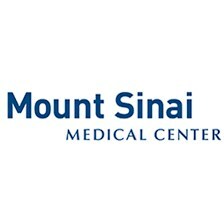Parental Exposure To Marijuana Linked To Drug Addiction And Compulsive Behavior In Unexposed Progeny
Mount Sinai Study Pinpoints Molecular and Neurobiological Effects of THC, the Main Psychoactive Ingredient in Marijuana
NEW YORK, Jan. 22, 2014 /PRNewswire-USNewswire/ -- Exposing adolescent rats to THC (tetrahydrocannabinol) -the primary psychoactive ingredient in marijuana--can lead to molecular and behavioral alterations in the next generation of offspring, even though progeny were not directly exposed to the drug, researchers at the Icahn School of Medicine at Mount Sinai have found. Male offspring showed stronger motivation to self-administer heroin during their adulthood and molecular changes in the glutamatergic system, which is the most important excitatory pathway for neurotransmission in the brain. Damage in the glutamate pathway, which regulates synaptic plasticity, has been linked to disturbances in goal-directed behavior and habit formation.
The study is published online Jan. 22 in Neuropsychopharmacology.
"Our study emphasizes that cannabis [marijuana] affects not just those exposed, but has adverse affects on future generations," said Yasmin Hurd, PhD, the study's senior author, and professor of psychiatry and neuroscience at the Icahn School of Medicine at Mount Sinai. "Finding increased vulnerability to drug addiction and compulsive behavior in generations not directly exposed is an important consideration for legislators considering legalizing marijuana."
In the study, Dr. Hurd and colleagues gave adolescent male rats 1.5 mg/kg of THC, similar to about one joint in human use. None of the rats had been exposed to THC before, but their parents were exposed to THC as teens and then mated later in life. THC-exposed offspring worked harder to self-administer heroin by pressing a lever multiple times to get heroin infusion.
Although marijuana use and safety tends to be discussed in terms of its impact to the individual during the lifetime, few studies have addressed adverse effects in future generations. "What this opens up are many questions regarding the epigenetic mechanisms that mediate cross-generational brain effects," said Dr. Hurd.
Future studies are now being explored to determine whether THC effects continue to be transmitted to even the subsequent grandchildren and great-grandchildren generations. Another important question relates to potential treatment interventions in order to reverse the cross-generational THC effects. Such insights could also have implications for novel treatment opportunities for related psychiatric illnesses.
Henrietta Szutorisz, PhD, Jennifer A. DiNieri, PhD, Eric Sweet, PhD, Gabor Egervari, MD, Michael Michaelides, PhD, Jenna Carter, PhD, Yanhua Ren, PhD, Michael Miller, and Robert D. Blitzer, PhD, all from the Icahn School of Medicine at Mount Sinai also contributed to this study, which was supported by the National Institutes of Health grants DA030359 and DA033660.
About the Mount Sinai Health System
The Mount Sinai Health System is an integrated health system committed to providing distinguished care, conducting transformative research, and advancing biomedical education. Structured around seven member hospital campuses and a single medical school, the Health System has an extensive ambulatory network and a range of inpatient and outpatient services--from community-based facilities to tertiary and quaternary care.
The System includes approximately 6,600 primary and specialty care physicians, 12-minority-owned free-standing ambulatory surgery centers, over 45 ambulatory practices throughout the five boroughs of New York City, Westchester, and Long Island, as well as 31 affiliated community health centers. Physicians are affiliated with the Icahn School of Medicine at Mount Sinai, which is ranked among the top 20 medical schools both in National Institutes of Health funding and by U.S. News & World Report.
For more information, visit http://www.mountsinai.org. Find Mount Sinai on: Facebook: http://www.facebook.com/mountsinainyc Twitter @mountsinainyc YouTube: http://www.youtube.com/mountsinainy
This news release was issued on behalf of Newswise™. For more information, visit http://www.newswise.com.
Media Contacts:
Mount Sinai Press Office
212-241-9200
[email protected]
SOURCE Mount Sinai Medical Center
WANT YOUR COMPANY'S NEWS FEATURED ON PRNEWSWIRE.COM?
Newsrooms &
Influencers
Digital Media
Outlets
Journalists
Opted In





Share this article